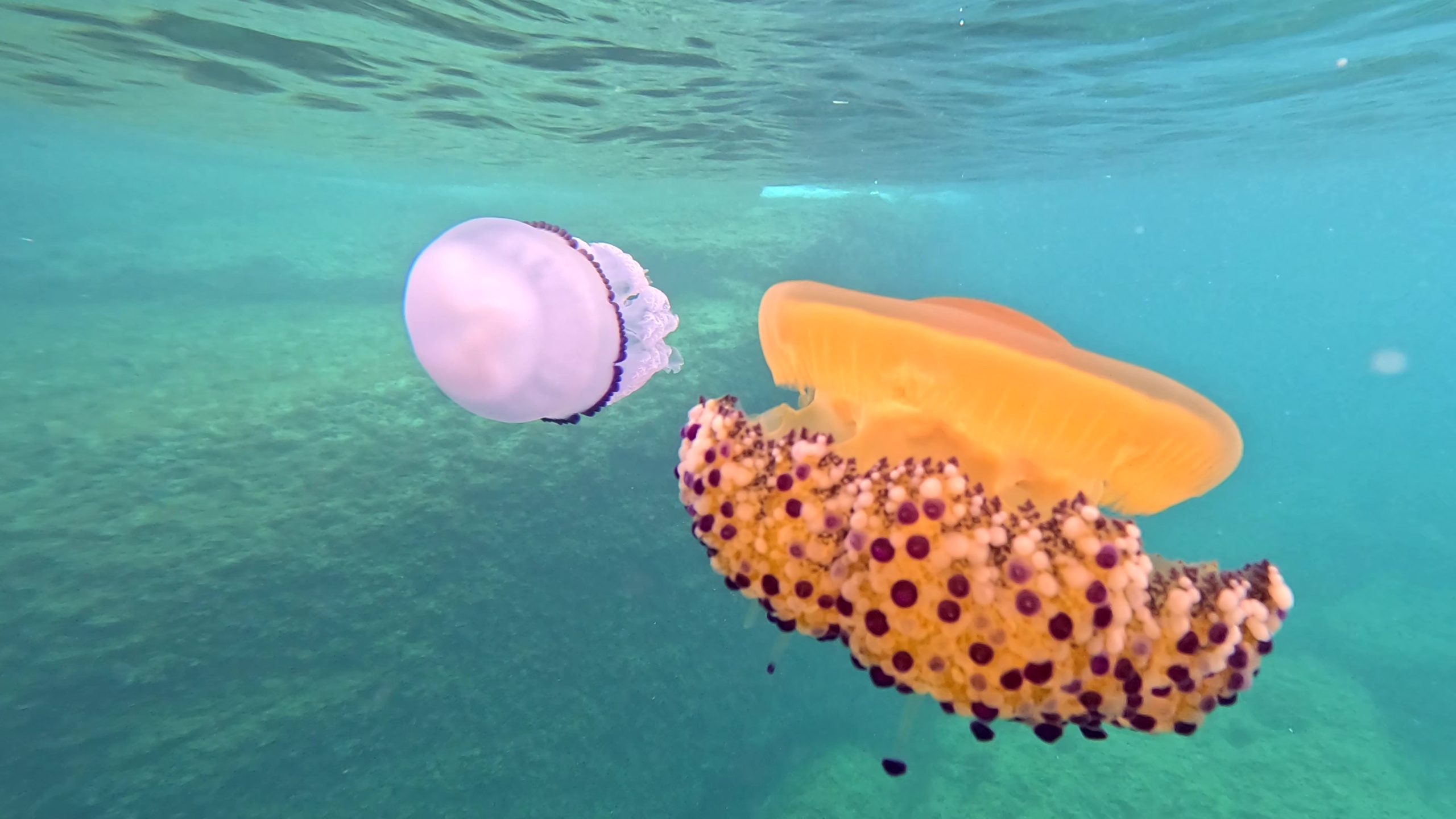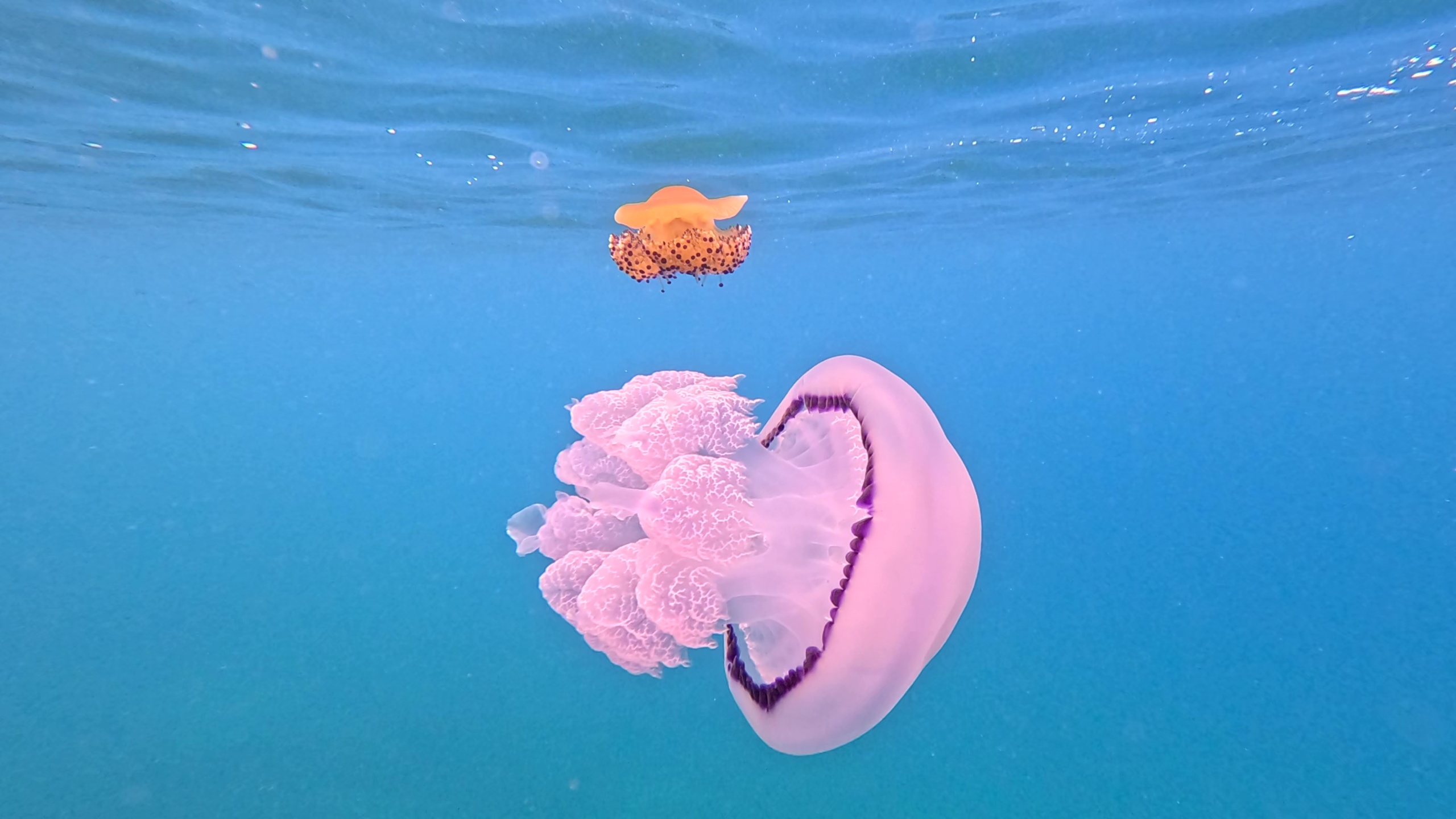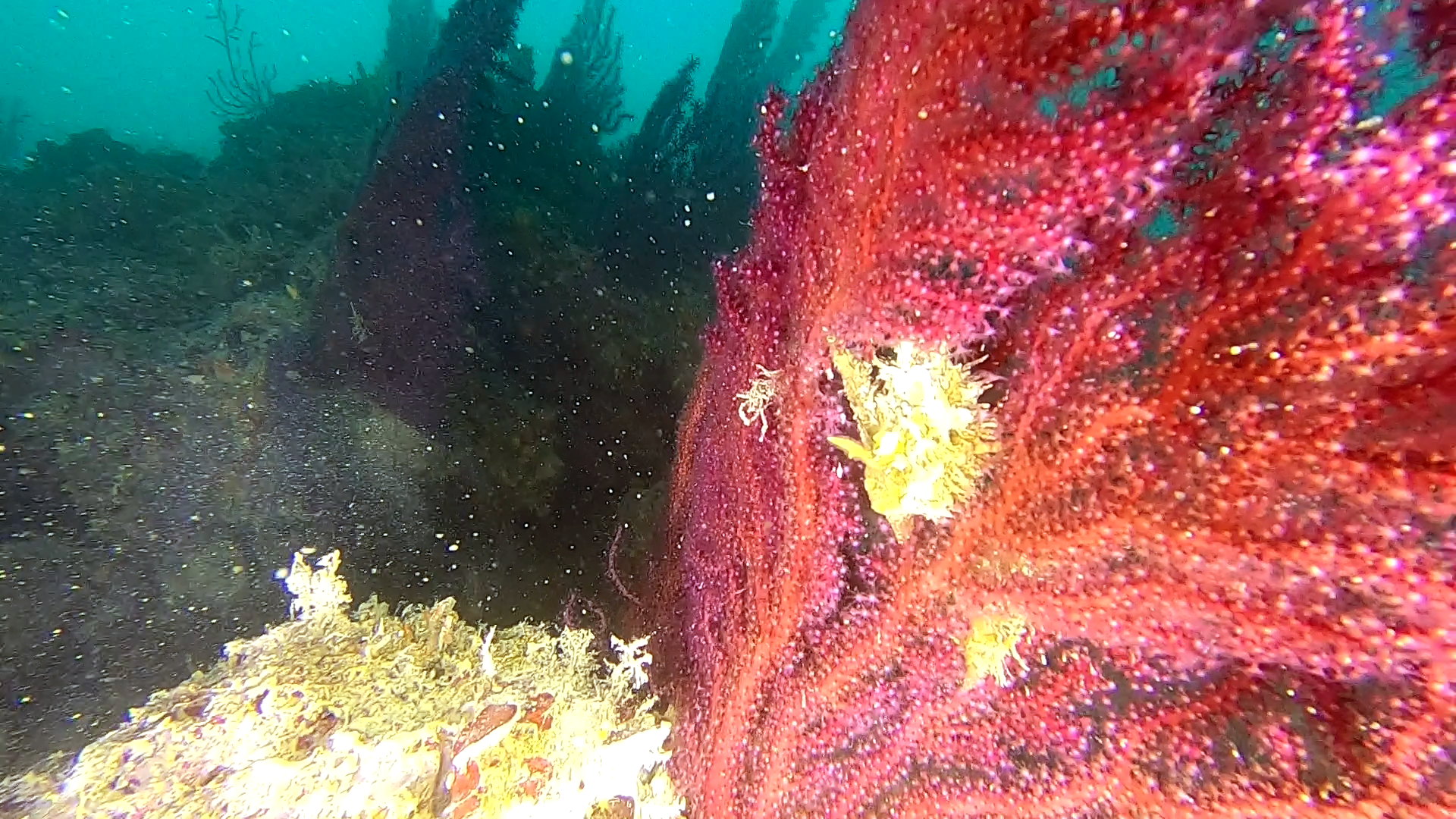Effects of global warming and the current climate crisis are seen above all in the sea which is becoming increasingly warm and salty. We are now facing a real tropicalization of the Mediterranean Sea which is leading to a too rapid and rapid change of this ecosystem, so we are increasingly witnessing an invasion of alien species, explosions of mucilage and toxic algae, a decrease in native fish species, a reduction in fishing and catches and, as can be seen from these images, a proliferation of jellyfish. Mediterranean increasingly warm record temperatures jellyfish

Cassiopea mediterranea Cotylorhiza tuberculata – Polmone di mare Rhizostoma pulmo – www.intotheblue.it
The causes of this phenomenon are multiple: the increase in temperatures leads to an increase in jellyfish because it stimulates their reproduction since they prefer warm waters; another reason is the decrease in fish that eat jellyfish larvae (polyps), such as tuna and sunfish.
These days the sea temperature fluctuates from 28/29 – 30 ° C, constant day and night up to a depth of about 10 meters, and in fact we are witnessing a real invasion of jellyfish throughout our Mediterranean Sea. The jellyfish that we filmed at the same time are the classic and typical jellyfish of the Mediterranean, namely Cassiopea mediterranea (Cotylorhiza tuberculata) and Barrel jellyfish (Rhizostoma pulmo).

Cassiopea mediterranea Cotylorhiza tuberculata – Polmone di mare Rhizostoma pulmo – www.intotheblue.it
These jellyfish (we will never tire of repeating it) are totally harmless and not dangerous! and it is very normal to encounter them in the summer even if we must admit that in recent years their presence has actually been increasing.
We report an excerpt from this article from the “Fatto Quotidiano” of June 2024 which seems very exhaustive on the subject.
“…. In view of June 8, World Oceans Day, the WWF has released a report that analyzes the conditions of our waters according to which in April 2023 the average temperature of the sea that bathes a large part of our peninsula has reached a new negative record, rising to 21.1 degrees. […] The report, entitled “The Breath of the Oceans”, collects the critical elements deriving from climate change that are most worrying. Among these there is a focus on the Mediterranean Sea, defined by the environmentalist association as “the hotspot” of this phenomenon, which last year reached a temperature of 21.1 ° with an average increase of almost one degree compared to the period between 1850 and 1900. The situation highlighted by the WWF has a negative impact on the key role of the seas when it comes to thermoregulation of the global climate and oxygen production. But the problems are not over, because the warming of the waters favors circumstances such as the reduction of posidonia forests, the proliferation of jellyfish and the massive appearance of alien species.”
These jellyfish have a certain charm and are still an important link in the marine food chain since they represent a safe source of food for many fish, cetaceans and sea turtles, so “fishing them to remove a danger from the sea” is a stupid and useless gesture, so we renew for the umpteenth time the invitation to collect plastic from the sea and let the jellyfish live.
Gallery
 English
English Italiano
Italiano



